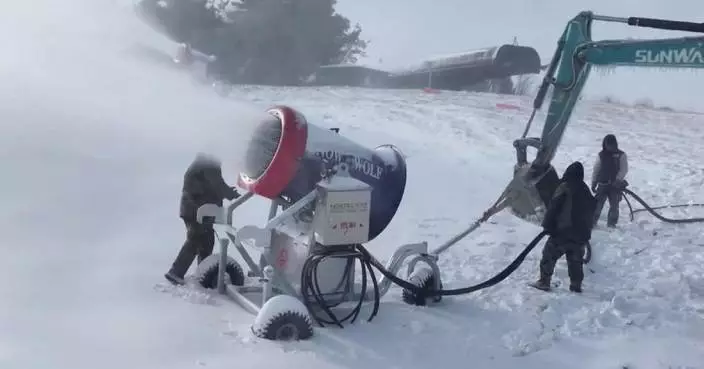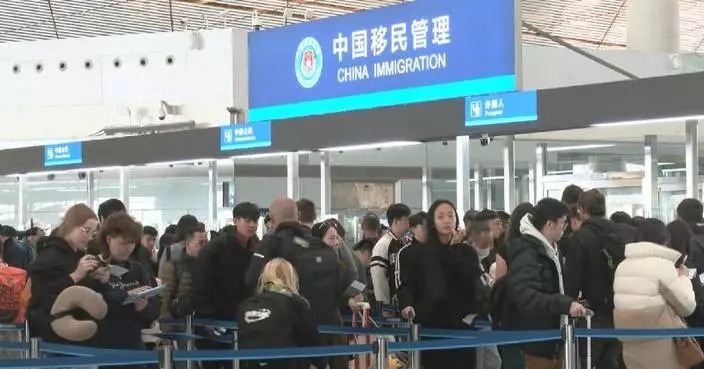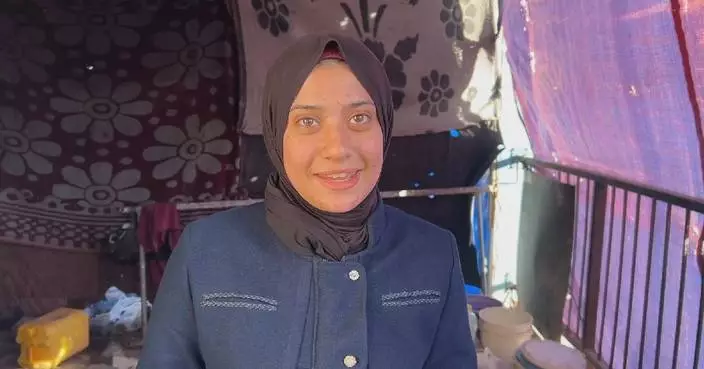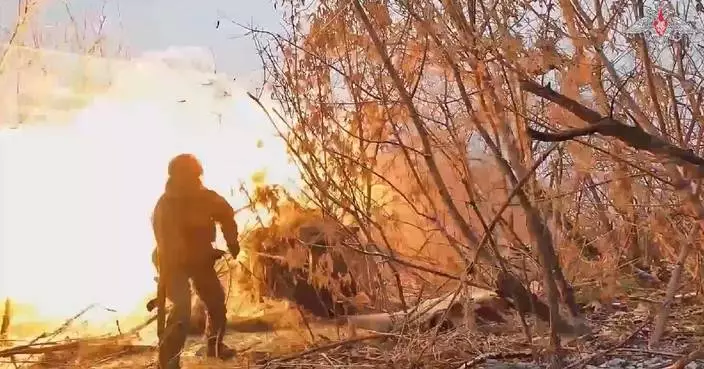Post-disaster relief and reconstruction efforts are underway in the Valencian region of Spain after the region was devastated by deadly flash floods triggered by unrelenting rainfall over the past few days.
The death toll has now soared to 205 from the initial 12 on Wednesday, with 202 fatalities reported in the region of Valencia, two in Castilla-La Mancha and one in Andalusia, according to the Center for Coordinated and Integrated Operations
A school in Requena, a small town less affected by the disaster thanks to its high elevation, has been converted into a temporary shelter for the displaced from nearby towns, with medical equipment provided to help people afflicted by floods.
The disrupted telecommunication service in the aftermath of the floods has made the relief efforts more difficult, according to Rocio, town mayor of Requena.
"Many people have relatives in the towns around Valencia. And they don't know what's going on with their families because we can't get in touch with anyone there. There's no internet or phone. Some areas are very far from the center of the town, which also makes our rescue work very difficult," said Rocio.
Despite the tough rescue and relief work, some of the swamped streets have been now cleaned up.
The Spanish government has mobilized vehicles to take some of the affected residents back to their homes from the shelter.
Some towns near Requena were severely damaged by the floods, with homes, shops, and restaurants washed away.
According to the report released by local authorities, railway lines in Valencia have been completely destroyed, while many roads and bridges in the region have been demolished, making the post-disaster reconstruction harder.
Residents in the Valencian region, with the help of the local government, are now stepping up efforts to clean up the roads covered by silt.
"This is the situation now. My house has no gas, and we have no water. Now there is no gas at home. We can only tide over the difficulties with our neighbors. Everyone unites and helps each other, and this is the only way we can deal with it," said Marta, a victim of the floods.
In addition, volunteers from all over the country rushed to the region, helping local residents with the cleanup.
"We usually get up at 7 o'clock, and when everyone comes out of the hotel at 8 o 'clock, we start to work. Volunteers disperse from here, and everyone can't stop. We have to go somewhere else to help at any time, and I know there's a lot of work to be done," said Jose, a volunteer.
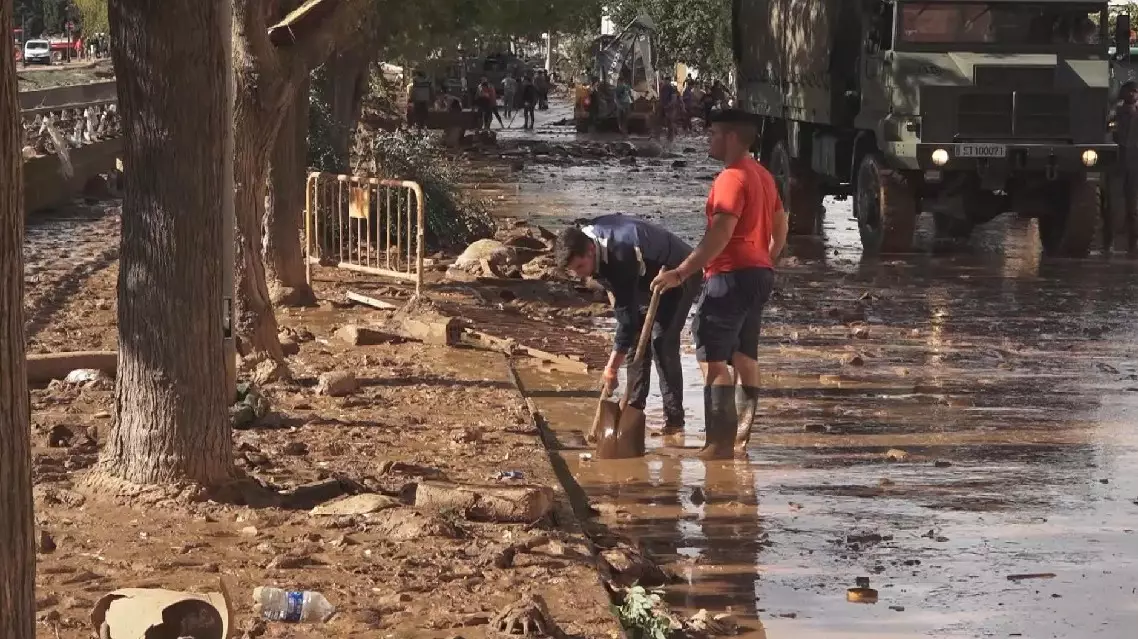
Post-disaster relief, reconstruction efforts underway in flood-hit Spain
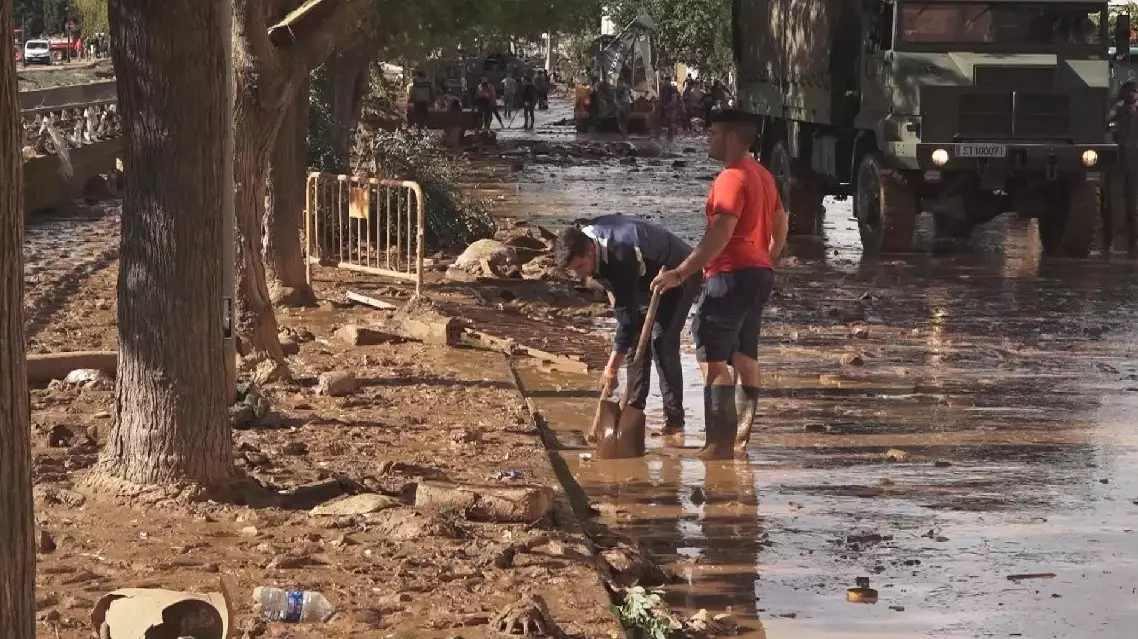
Post-disaster relief, reconstruction efforts underway in flood-hit Spain
A contemporary Chinese art exhibition has been held at the Hungarian National Museum in Budapest, playing a vibrant role in fostering cultural ties between the East and the West. The exhibits, including brush paintings and sculptures on mountains, rivers, plants, blend traditional brushwork with Western influences, creating a serene, meditative atmosphere.
The artists' deep connection with the natural world is a window that the "Chinese Xieyi exhibition'' at the Hungarian National Museum presents to the public to explore Chinese philosophy, according to Tunde FegyvAri-Komori, curator of the Hungarian National Museum.
"This exhibition is a collection of 58 artworks, including four sculptures from 58 different artists, from the National Art Museum of China's collection. And they represent modern and contemporary artworks, partly reflecting back to the traditional Chinese painting and Chinese art, and partly reflecting to Western influences in art, which mostly started arriving in China after the 1970s and the 80s," said FegyvAri-Komori.
Much of the exhibition showcases traditional Chinese brushwork, where delicate strokes create intricate designs and meanings that express deep philosophical meanings, allowing viewers to experience the world from their perspective.
"The Chinese curators constructed the exhibition around these three topics and these three main aspects to approach Xieyi itself. The first one is called 'yi', which translates as meaning. This focuses on the essence of the topic. The second one is form, which in Chinese is 'xing,' and it's quite similar to meaning, but from a different approach. They are focusing on the form itself that they see, but they are not aiming at mirroring reality. The third one is called 'interest,' or in Chinese called 'qu.' And in this last part, I would say that it's a combination of the first two," said FegyvAri-Komori.
One standout piece is a sculpture that blends mythology and modern art, depicting Lao Tzu departing from the Qin Empire (221 BC to 207 BC), carrying the wisdom that shaped Taoist thought with him. The ox-head panther he rides symbolizes mysticism and the spiritual journey, adding another mythical dimension to the work.
"It expresses Xieyi very well, but at the same time, it also expresses a little bit of Western modern art, abstract art," said FegyvAri-Komori.
For many visitors, the exhibition is a chance to experience the dynamic evolution of Chinese art.
"My father had several books about Chinese art, about porcelains, ceramics, and paintings. It always struck me how different it is from our European tradition. There's a subtlety and sensitivity in it. The way they express emotions feels so unique and profound," said Daniel, a visitor.
The exhibition, part of celebrations of the 75th anniversary of the establishment of diplomatic relations between Hungary and China, celebrates cultural exchange and shared appreciation for art and culture.

Contemporary Chinese art expo held in Hungary helps cultivate ties between east and west





